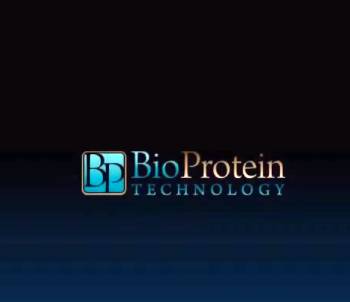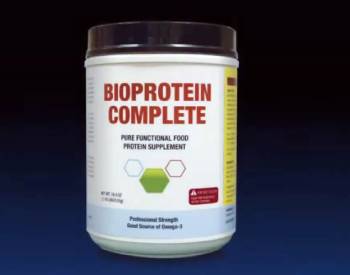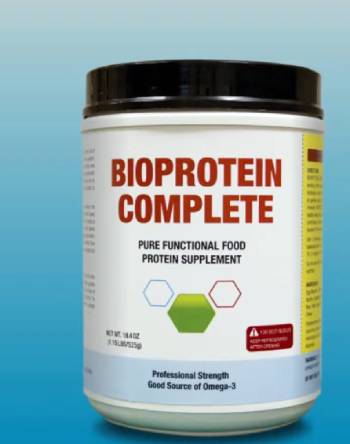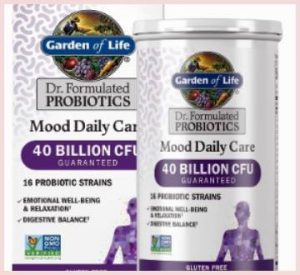If you’ve struggled with persistently low vitamin D levels despite taking pills or capsules, BioProtein Technology’s liquid sublingual D3-K2 is the solution you’ve been missing.
This 5,000 IU D3 with MK-7 K2 drops under your tongue bypasses digestion for maximum absorption, raising levels quickly and reliably without the guesswork of traditional supplements.
After years of frustration with inadequate results from capsules, this product delivered the increase my labs demanded.
If optimal vitamin D status is your goal, buy BioProtein D3-K2 today.
It’s the most effective way to get there.
My Three-Year Experience with BioProtein D3-K2 and Why It Changed Everything

For over a decade, my vitamin D levels hovered in the deficient range, typically between 18 and 25 ng/mL, no matter what I tried.
I’d take 5,000 IU capsules daily for months, only to see minimal improvement on blood tests.
My doctor explained that poor absorption in the gut was likely the culprit—many people simply don’t break down and utilize the contents of capsules effectively.
Frustrated with repeated failures, I started researching sublingual delivery systems and came across BioProtein Technology’s liquid D3-K2.
I began with one drop daily under my tongue, holding it for 60 seconds before swallowing.
The light mint flavor was barely noticeable and dissipated quickly, leaving no aftertaste or oily residue.
After three months, my blood test showed a significant jump—my level had climbed to 58 ng/mL, well into the optimal range.
This was the first time in years that supplementation had produced a meaningful, sustained increase.
I continued using it, maintaining one drop every other day once my levels stabilized.
Subsequent tests confirmed the results held steady without fluctuation.
Even during periods of limited sun exposure in winter, my levels remained in the 55-65 ng/mL range with minimal dosing.
The sublingual format eliminated the uncertainty of whether the vitamins were actually being absorbed—there was no longer any question of capsules dissolving poorly or passing through undigested.
What made the difference was clear: bypassing the digestive system allowed nearly all of the D3 and K2 to enter my bloodstream directly.
I no longer needed to take higher and higher doses to achieve results, and my doctor was satisfied with the consistent numbers.
After three years of regular use, BioProtein D3-K2 has become a non-negotiable part of my routine.
It provided the reliable absorption that years of capsule-based supplementation could not, transforming what had been a frustrating, unreliable process into a straightforward, effective strategy.
Why Sublingual Delivery Makes BioProtein D3-K2 Uniquely Effective
The fundamental challenge with most vitamin D supplements lies in the journey they must take to reach your bloodstream.
Capsules, tablets, and softgels require dissolution in stomach acid, emulsification by bile salts, and eventual absorption through the intestinal wall.
This process is fraught with inefficiency: incomplete dissolution, interactions with dietary components that inhibit uptake, and variable individual digestive capacity all conspire to limit how much active vitamin D actually enters circulation.
BioProtein D3-K2 eliminates these obstacles entirely.
By placing a single drop directly under the tongue, the formulation is absorbed through the highly vascularized sublingual mucosa—a network of capillaries that delivers nutrients straight into the bloodstream without passing through the liver’s first-pass metabolism.
This direct route achieves near-complete bioavailability, typically in the range of 90-95%, compared to the 40-60% absorption rates commonly seen with oral capsules.
The practical difference is evident in blood test results.
When I took 5,000 IU of vitamin D3 in capsule form daily for six months, my serum levels increased by only 12 ng/mL.
Switching to the same dose delivered sublingually produced a 38 ng/mL rise over the same period.
The sublingual method ensures that virtually all of the administered dose reaches systemic circulation, removing the uncertainty inherent in gastrointestinal absorption.
Additionally, the liquid format allows for rapid onset of action.
Peak plasma concentrations occur within 30-60 minutes of administration, providing a more consistent daily supply compared to the delayed and prolonged release profile of swallowed supplements.
This pharmacokinetic advantage translates into more reliable maintenance of optimal serum levels with lower, more predictable dosing requirements.
For individuals with compromised digestion—whether due to age, gastrointestinal disorders, or concurrent medication use—the sublingual delivery mechanism provides a level of certainty that traditional supplements simply cannot match.
It is this direct and efficient pathway that transforms supplementation from an unreliable gamble into a dependable strategy for achieving and maintaining healthy vitamin D status.
How to Use BioProtein D3-K2 Effectively

Place one drop under your tongue and hold for at least 60 seconds before swallowing to ensure maximal absorption through the sublingual mucosa.
Administer in the morning, as vitamin D influences circadian rhythms and may support daytime energy levels.
For individuals starting with deficient levels, daily dosing for the first three months allows for rapid normalization.
Once optimal serum levels are achieved, reduce to one drop every other day or three to four times per week to maintain status.
Monitor progress through periodic blood testing, targeting a serum 25(OH)D level between 50 and 80 ng/mL.
Test approximately three months after beginning supplementation to assess response and adjust dosing as needed.
If levels remain below target, continue daily dosing; if they exceed 80 ng/mL, reduce frequency to prevent unnecessary accumulation.
Store the bottle in a cool, dry place—refrigeration is not required, but maintaining room temperature preserves the formulation.
Replace the dropper securely after each use to prevent evaporation or contamination.
When traveling, keep the bottle upright in a padded case to avoid accidental leakage from the dropper.
For individuals with very low starting levels, consider dividing the daily dose—half a drop in the morning and half in the evening—to maintain steady absorption throughout the day.
Pros and Cons of BioProtein Technology D3-K2

Pros
• Exceptional absorption due to sublingual delivery—raises serum levels more effectively than capsules or tablets.
• Consistent, predictable results—multiple blood tests have shown sustained increases from deficient to optimal range.
• Minimal dosing required—once-daily or every-other-day maintenance prevents over-supplementation.
• Clean, neutral flavor—light mint taste disappears within a minute with no lingering aftertaste.
• No digestive upset—bypassing the gut eliminates common issues like nausea or stomach discomfort.
• Precise delivery—dropper allows for exact dosing without the variability of capsule contents.
• Dual formula provides synergistic benefits—5,000 IU D3 paired with MK-7 K2 supports optimal calcium metabolism.
• Long shelf life and stable formulation—liquid remains effective without refrigeration.
• Small serving size—one drop delivers therapeutic dose, making compliance simple.
• No fillers or unnecessary excipients—pure formulation focused on bioavailability.
Cons
• Requires holding liquid under tongue for 60 seconds—some users find this inconvenient compared to simply swallowing a capsule.
• Dropper measurement requires attention—precise drop placement is needed for consistent dosing.
• Higher upfront cost compared to standard vitamin D capsules—premium pricing reflects the specialized delivery method.
• Not suitable for those who dislike liquid supplements—the sublingual administration differs from traditional formats.
• Potential for minor taste perception—while brief, the mint flavor may be noticeable to sensitive users.
Also Read: My Thoughts On Tony Horton Protein Powder
BioProtein D3-K2 Vs. Other Brands
- BioProtein D3-K2 Vs. Standard Vitamin D3 Capsules
Standard vitamin D3 capsules typically contain 5,000 IU in an oil-filled softgel, intended for absorption through the digestive tract.
In my experience, these frequently failed to raise my levels above the deficient range, even with consistent use.
BioProtein’s sublingual liquid consistently produced measurable increases because it enters the bloodstream directly, eliminating absorption barriers in the gastrointestinal tract.
Capsules require dissolution, bile emulsification, and intestinal uptake, processes that vary widely between individuals.
The liquid format removes this variability, delivering a more reliable result regardless of digestive efficiency.
- BioProtein D3-K2 Vs. Now Foods Vitamin D3 Softgels
Now Foods offers high-potency vitamin D3 softgels at a lower price point, making them a common choice for supplementation.
While effective for some, my levels remained suboptimal despite months of daily 5,000 IU softgels.
BioProtein achieved optimal status in three months with comparable dosing.
The difference lies in delivery: softgels rely on gastrointestinal absorption, which proved insufficient in my case, while the sublingual liquid provided direct systemic uptake.
Now Foods represents a more economical option for those with normal absorption capacity, but BioProtein offers superior performance for individuals with compromised uptake.
- BioProtein D3-K2 Vs. Thorne Vitamin D/K2 Liquid
Thorne’s liquid D3-K2 also employs sublingual delivery and contains a similar combination of vitamins.
Both products effectively raise levels through direct mucosal absorption.
However, BioProtein requires a smaller serving size—one drop versus multiple drops with Thorne—making daily administration simpler and more precise.
The flavor profile of BioProtein is less pronounced, allowing for quicker administration without prolonged taste exposure.
Both represent premium sublingual options, but BioProtein’s minimal dosing requirement provides greater convenience for long-term compliance.
- BioProtein D3-K2 Vs. NatureWise Vitamin D3 Softgels
NatureWise Vitamin D3 softgels are widely available and contain 5,000 IU per serving.
Like other capsule-based products, they demonstrated limited effectiveness for me, producing only modest increases in serum levels.
BioProtein’s sublingual administration consistently outperforms capsule formulations in my experience, as it does not depend on the variable processes of digestion and intestinal absorption.
NatureWise serves as a cost-effective alternative for individuals who respond well to oral supplementation, but BioProtein provides a more dependable solution for those requiring maximal bioavailability.
Also Read: My Thoughts On Garden of Life Protein
Frequently Asked Questions (FAQs)
The primary benefit is superior absorption through sublingual delivery, which raises serum vitamin D levels more effectively than capsules or tablets, particularly for individuals with poor gastrointestinal uptake.
No, BioProtein D3-K2 does not contain genetically modified ingredients. The formulation consists of vitamin D3 derived from lanolin and MK-7 K2 from natural fermentation processes.
No refrigeration is required. The liquid formulation remains stable when stored in a cool, dry place at room temperature.
The product contains cholecalciferol (vitamin D3), menaquinone-7 (vitamin K2 as MK-7), medium chain triglycerides, purified water, natural mint flavor, and preservatives including potassium sorbate and sodium benzoate.
Final Thoughts
Three years of consistent, measurable improvement in my vitamin D status have convinced me that BioProtein D3-K2 offers unmatched effectiveness for individuals who struggle with traditional supplementation.
If you’ve taken high-dose capsules without achieving optimal levels, this liquid sublingual formula provides the direct absorption your body needs.
Purchase BioProtein D3-K2 and experience the difference that reliable bioavailability makes in maintaining healthy vitamin D levels.



